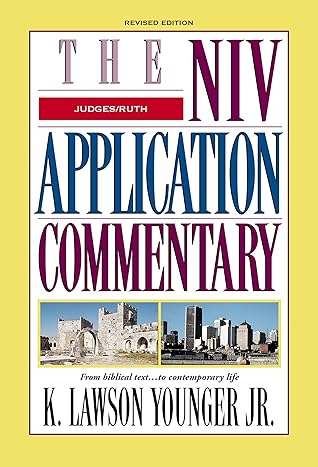Ironically, the man comes from Bethlehem (bet lehem),13 which means “house of bread,” but there is no bread/food in that city. This man, together with his wife and two sons, go to live as resident foreigners in the country of Moab—a traditional enemy of Israel throughout biblical history.14 As Hubbard aptly notes: This family left the familiar for the unfamiliar, the known for the unknown. The foursome was legally a “stranger” (Heb. gēr), and so was its world. Further, to seek refuge in Moab . . . was both shameful and dangerous.15
Welcome back. Just a moment while we sign you in to your Goodreads account.


